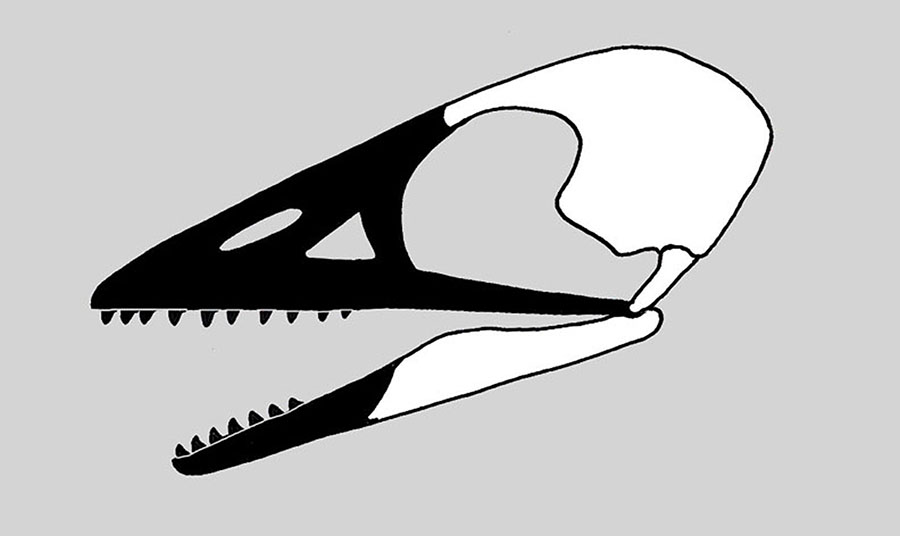Species: ukhaana NORRELL & CLARKE, 2001
Etymology: In reference to the type locality, Ukhaa Tolgod.
Holotype: IGM 100/1017
Locality: Camels Humps amphitheater, Ukhaa Tolgod, near the salt extraction settlement of Daus, northeastern Nemegt Basin, Gurvan Tes Somon, Ömnögov (South Gobi), Mongolia.
Horizon: Djadochta Formation.
Biostratigraphy:
Age: Middle Campanian Stage, Senonian Subepoch, Gulf Epoch, Late Cretaceous.
Material: Nearly complete specimen lacking the cervical vertebrae and skull.

Apsaravis ukhaana (after NORRELL & CLARKE, 2001), Holotype: IGM 100/1017.